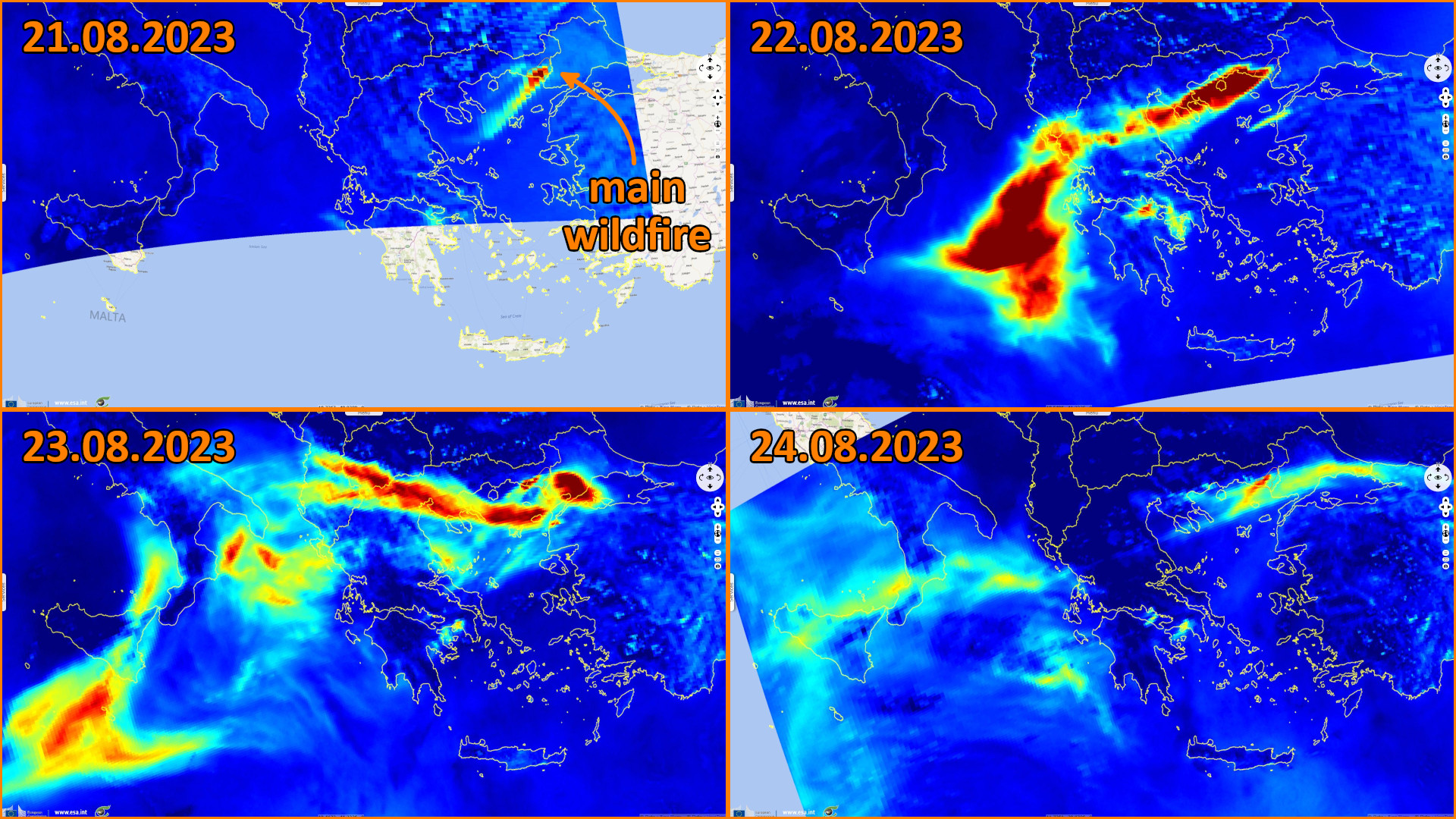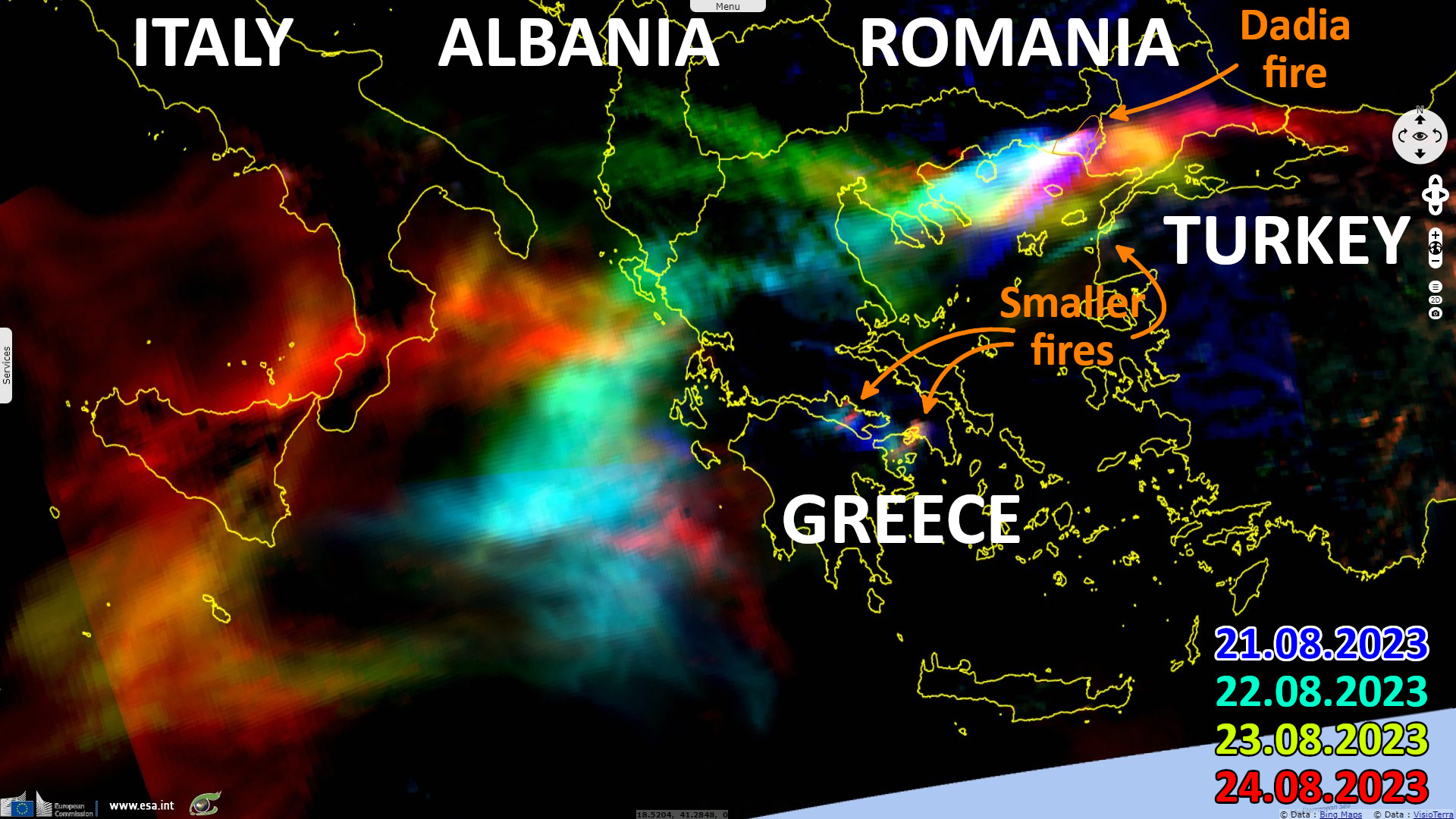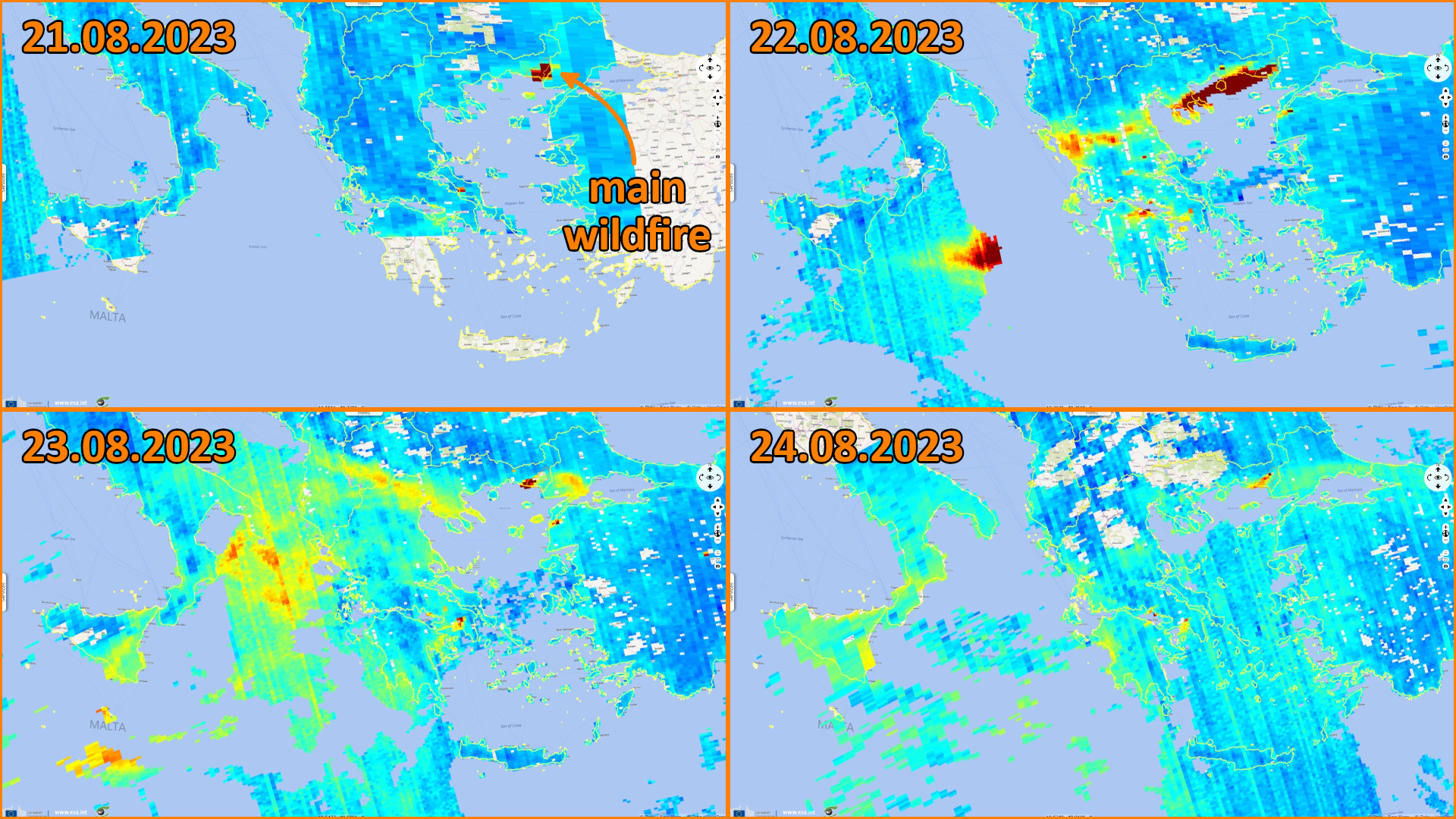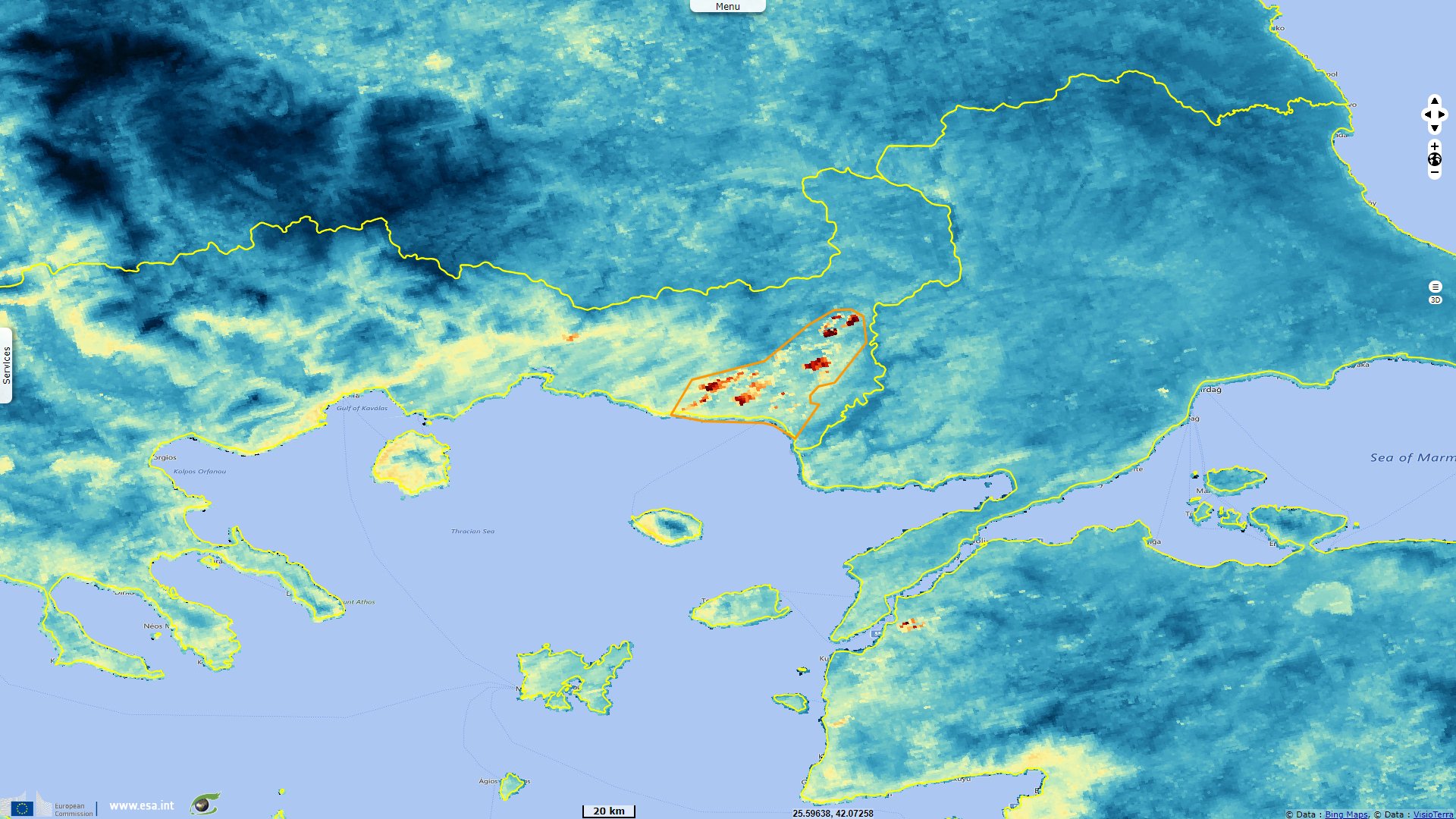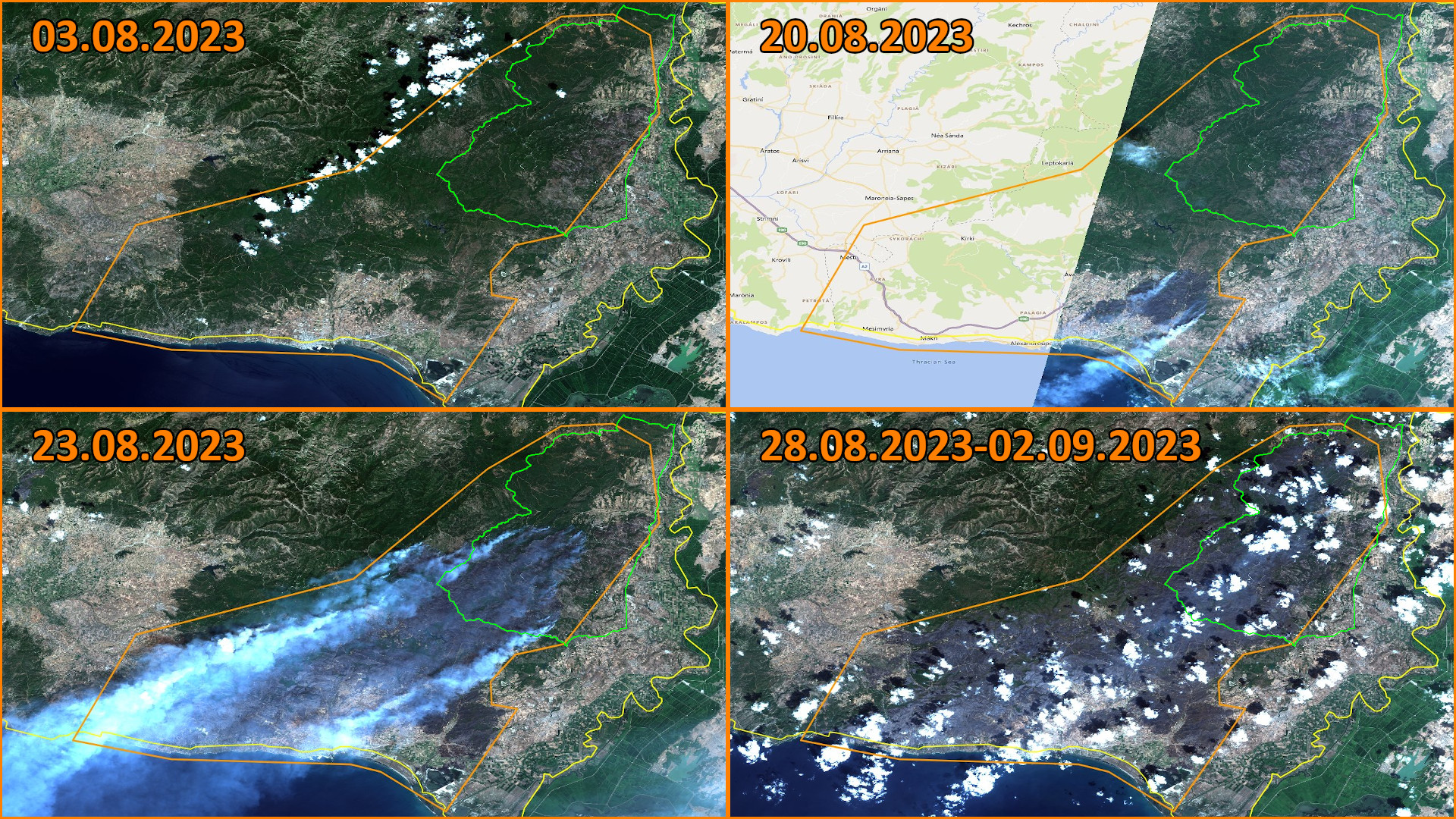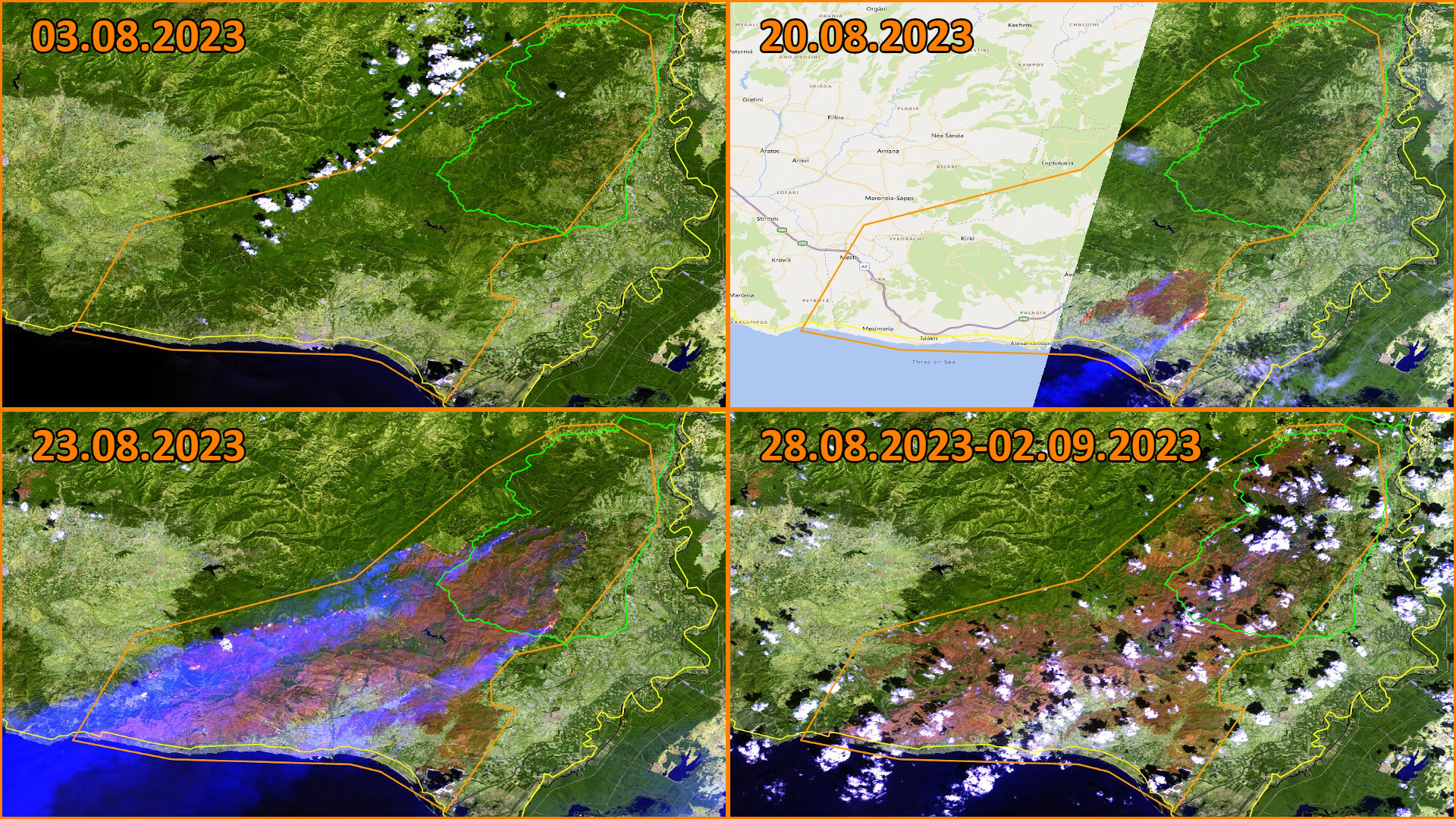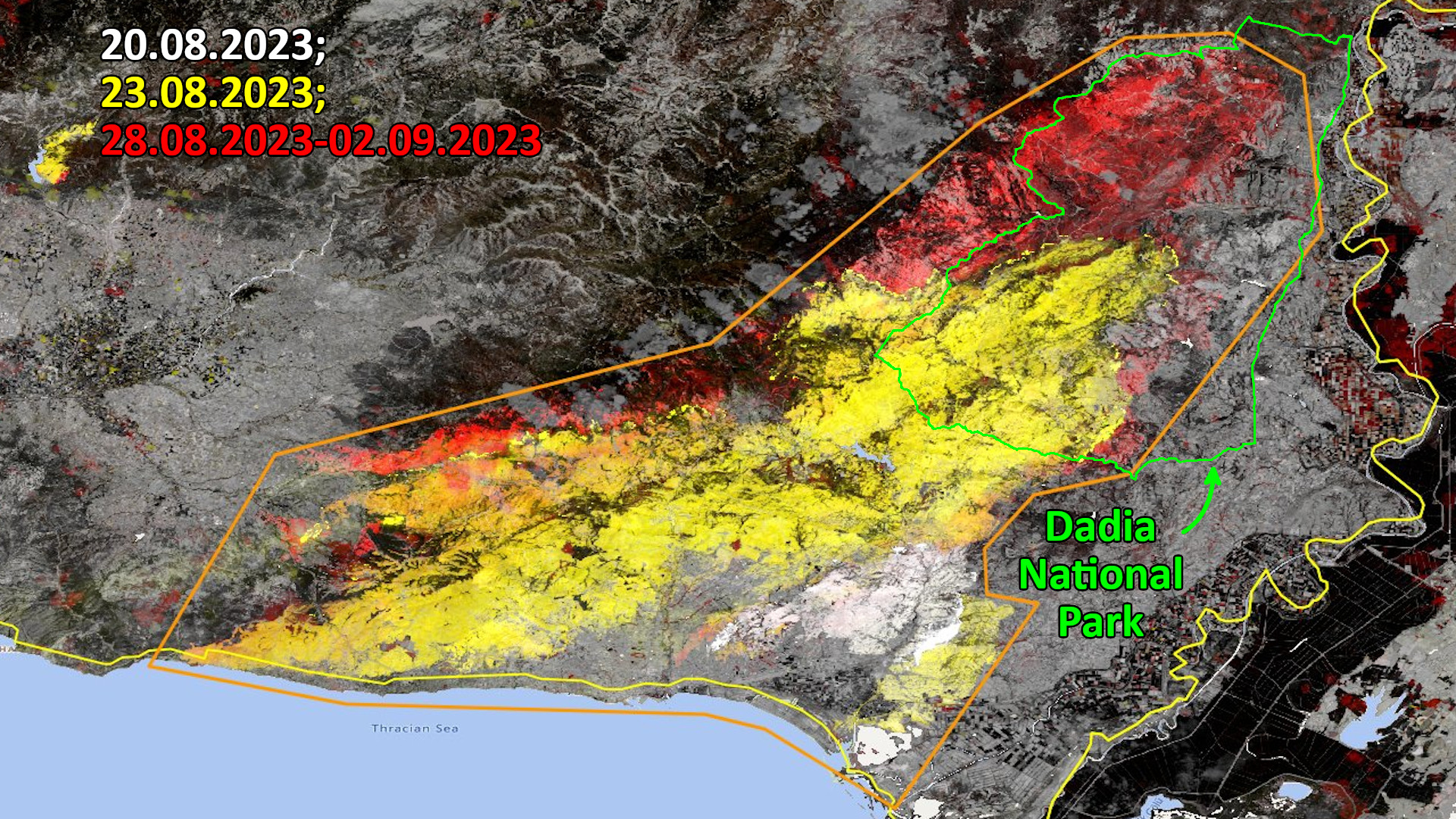The largest wildfire ever recorded in the UE burns over 810 km² near Dadia National Park, Greece
Sentinel-5P TROPOMI AER_AI & CO acquired on 21 August 2023 at 12:09:43 UTC
...
Sentinel-2 MSI acquired on 02 September 2023 at 09:06:01 UTC
Sentinel-1 CSAR IW acquired on 02 September 2023 at 16:16:25 UTC
Sentinel-3 SLSTR LST acquired on 03 September 2023 from 19:43:00 to 20:21:54 UTC
...
Sentinel-2 MSI acquired on 02 September 2023 at 09:06:01 UTC
Sentinel-1 CSAR IW acquired on 02 September 2023 at 16:16:25 UTC
Sentinel-3 SLSTR LST acquired on 03 September 2023 from 19:43:00 to 20:21:54 UTC
Keyword(s): Natural disaster, emergency, wildfire, forest, national park, biodiversity, Greece, atmosphere,
While Canada has faced devastating fires this summer that burnt an area bigger than Greece, Greece itself is fighting against the largest fire recorded in European history. Agence France Presse reminds the context: "The Mediterranean country is reeling under a heatwave that began on Saturday 19 August and is expected to last 10 days. Temperatures were set to rise to 42 degrees Celsius in some regions and the country is battling three major wildfires. Scientists say human-induced climate change is amplifying extreme weather -- including the heatwaves, droughts and floods seen in several parts of the planet in recent weeks -- and say these events will become more frequent and more intense."
The fire, which broke out on 19 August, is raging in the Evros region on the border with Turkey, near the port of Alexandroupoli. "Classified by experts as a 'megafire', the blaze raging in Dadia has so far destroyed more than 81 000 hectares (an area bigger than New York City) of the forested area, protected by the European agency Natura 2000.", according to Agence France Presse.
They add: "Like several Mediterranean countries, Greece faces fierce wildfires every summer, which this year left 26 people dead and at least 150 000 hectares burned, according to Greek Prime Minister Kyriakos Mitsotakis." Elena Becatoros reports for Associated Press: "Sixty firefighters have been injured, fire department spokesman Ioannis Artopios said."
She writes: "The wildfire in the Alexandroupolis region combined with smaller fires to create a massive inferno that has consumed homes and vast tracts of forest and triggered multiple evacuations of villages and of the city's hospital.". "The Alexandroupolis blaze was the EU’s largest on record, European Commissioner for Crisis Management Janez Lenarcic said."
Regarding the ecological toll, "Panagiota Maragou, head of conservation at the Greece division of the World Wildlife Fund (WWF), said at least 30% of the National Park of Dadia-Lefkimi-Soufli Forest had been lost.", Stamos Prousalis publishes for Reuters.
In 2014, the National Park of Dadia - Lefkimi - Souflion was submitted for future inscription on the UNESCO World Heritage List, under criterion x; currently, the submission resides on the Tentative List.
Agence France Presse specifies: "Dadia is one of the most important protected areas in Europe, offers ideal habitat for rare birds and is home to the only breeding population of black vultures in the Balkans. It hosts three out of the four vulture species of Europe -- the black vulture, the griffon vulture and the Egyptian vulture -- and 36 of Europe’s 38 species of raptors. Its varied habitats also support 104 butterfly species, 13 amphibian species, 29 reptile species and about 65 mammal species, 24 out of which are bats."
In another brief, it reminds: "Greece has been plagued by numerous fires this summer, which the government blames on climate change. According to estimates from the Greek National Observatory, more than 120 000 hectares have been burnt so far, three times the annual average since 2006, according to Copernicus."
"With their hot, dry summers, southern European countries are particularly prone to wildfires. European Union officials have blamed climate change for the increasing frequency and intensity of wildfires in Europe, noting that 2022 was the second-worst year for wildfire damage on record after 2017.", according to Elena Becatoros of Associated Press. Greece's Climate Crisis and Civil Protection Minister Vassilis Kikilias said arson was to blame for some of the blazes near Athens.
Nearly 500 firefighters backed up by 100 vehicles, 7 aircraft and 3 helicopters are battling the flames, said a fire service spokesman. She notes: "With firefighting forces stretched to the limit, Greece has asked other European countries for assistance. Germany, Sweden, Croatia and Cyprus sent aircraft, while dozens of Romanian, French, Czech, Bulgarian and Albanian firefighters have been helping on the ground."
Agence France Presse complements: "The EU calls on a fleet of 28 aircraft – 24 water-dumping planes and four helicopters – supplied by member countries to help battle blazes in the bloc and in neighbouring territories. It is working on creating a standalone, EU-funded air wing of 12 aircraft that will be fully in place by 2030."
